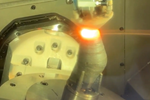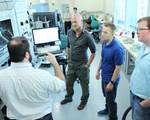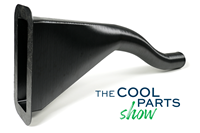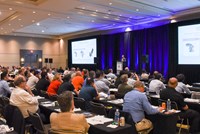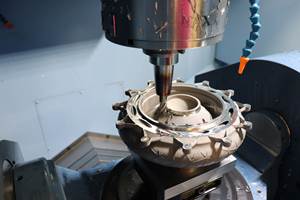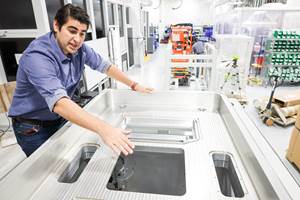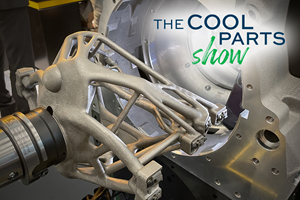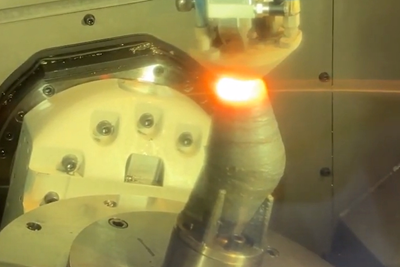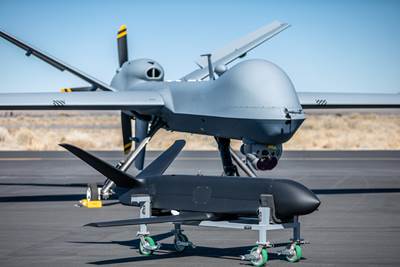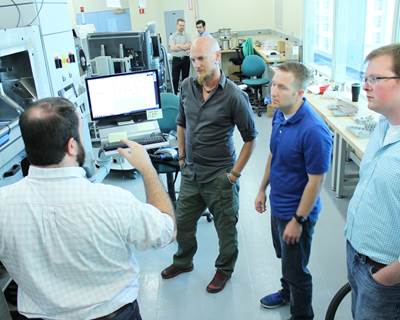Acquisition Brings DMLS Capability into M2M Group
Atlantic Precision joins a group of multiple machining businesses. Prior to landing this acquisition, the group had been prepared to launch additive manufacturing internally and proceed through the learning curve with this approach to making parts.
Share
Read Next
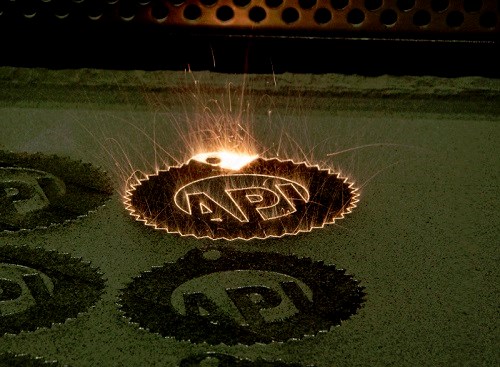
Generation Growth Capital Fund is an investment group managed out of Milwaukee and Chicago that aims to develop the unrealized value of small- to mid-size manufacturing businesses. We first wrote about the fund here. The firm has sought to acquire contract manufacturing businesses featuring both attractive machining capabilities and strong customer relationships in important markets. As of the beginning of this year, it had integrated four such machine shops into a multi-site manufacturing organization called the M2M Group.
As a whole, these four formerly independent shops provide capabilities that range through large-part machining, micromachining, multitask and five-axis machining, and rapid prototyping of both machined parts and castings. Bringing these companies together into one group enables them not only to leverage one another’s resources, says Generation Growth Capital Fund managing director John Reinke, but also to realize efficiencies by adopting an organization-wide set of best practices and sharing certain quality, management and back office expenses. The aim, he says, is to build a contract manufacturing organization able to serve OEM customers throughout the entire manufacturing process from early prototyping to mature production. Until recently, though, there seemed to be a piece missing.
Mr. Reinke says, “The thing keeping me up at night was: What’s going on with additive manufacturing?”
Now, the M2M Group will discover the answer to that question. The fifth company to be acquired into the group is Atlantic Precision Inc. (API) of Port St. Lucie, Florida, a machining business that also additively manufactures metal parts through direct metal laser sintering, or DMLS.
That API became available for acquisition was a welcome development, Mr. Reinke says. The company was already known to his group. M2M company Tri Aerospace had active projects with API and a track record of working with this company for metal prototype parts and short-run production runs, particularly for the jet engine industry. Before API was a candidate to be bought, Mr. Reinke had been searching for the way to add additive manufacturing of metal parts to the M2M stable, and the findings of his search say something about the state of additive manufacturing as a production option today.
In general, he says, the companies he found were just starting out. It was difficult to find an additive manufacturing provider of the right size to be acquired by his fund that was anything more than a recently launched or recently reinvented company. Through acquisition, he hoped for the M2M Group to avoid the learning curve of additive manufacturing, but what he consistently found were companies going through that same learning curve themselves. Therefore, he had all but resolved to launch additive manufacturing as a green-field project within one of the existing M2M businesses.
Then the group heard from API. The company is distinctive for the length of time it has offered additive manufacturing services to industrial customers, he says. To an extent, at least, it has been through the learning curve.
And it has been through this curve alongside customers. This is also key, he says. The trial-and-error requires customers who are willing to go through the process along with the supplier. API has the customers who had that willingness, and as the result of working closely together to make important strides forward in understanding additive manufacturing, API now has particularly strong customer relationships.
One anecdote illustrates how quickly events are moving related to this method of making parts, Mr. Reinke says. While the acquisition was under way, a customer asked API to purchase another DMLS machine so the shop would have additional capacity for upcoming work. As the potential purchaser, Mr. Reinke’s fund had to react along with API to this request. Thus, the terms of the still-unfinished acquisition were rewritten so that this machine purchase could go ahead.
Related Content
Additive Manufacturing Is Subtractive, Too: How CNC Machining Integrates With AM (Includes Video)
For Keselowski Advanced Manufacturing, succeeding with laser powder bed fusion as a production process means developing a machine shop that is responsive to, and moves at the pacing of, metal 3D printing.
Read MoreCopper, New Metal Printing Processes, Upgrades Based on Software and More from Formnext 2023: AM Radio #46
Formnext 2023 showed that additive manufacturing may be maturing, but it is certainly not stagnant. In this episode, we dive into observations around technology enhancements, new processes and materials, robots, sustainability and more trends from the show.
Read MoreSeurat: Speed Is How AM Competes Against Machining, Casting, Forging
“We don’t ask for DFAM first,” says CEO. A new Boston-area additive manufacturing factory will deliver high-volume metal part production at unit costs beating conventional processes.
Read More3D Printed Cutting Tool for Large Transmission Part: The Cool Parts Show Bonus
A boring tool that was once 30 kg challenged the performance of the machining center using it. The replacement tool is 11.5 kg, and more efficient as well, thanks to generative design.
Read MoreRead Next
Hybrid Additive Manufacturing Machine Tools Continue to Make Gains (Includes Video)
The hybrid machine tool is an idea that continues to advance. Two important developments of recent years expand the possibilities for this platform.
Read MoreAt General Atomics, Do Unmanned Aerial Systems Reveal the Future of Aircraft Manufacturing?
The maker of the Predator and SkyGuardian remote aircraft can implement additive manufacturing more rapidly and widely than the makers of other types of planes. The role of 3D printing in current and future UAS components hints at how far AM can go to save cost and time in aircraft production and design.
Read More4 Ways the Education and Training Challenge Is Different for Additive Manufacturing
The advance of additive manufacturing means we need more professionals educated in AM technology.
Read More
.jpg;width=70;height=70;mode=crop)
